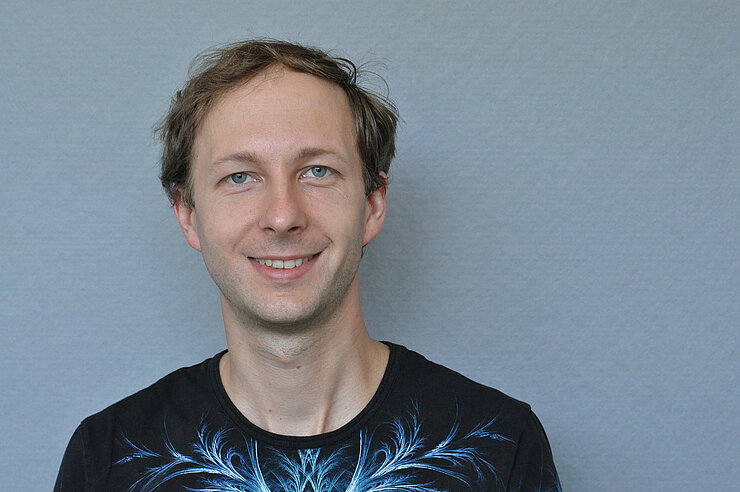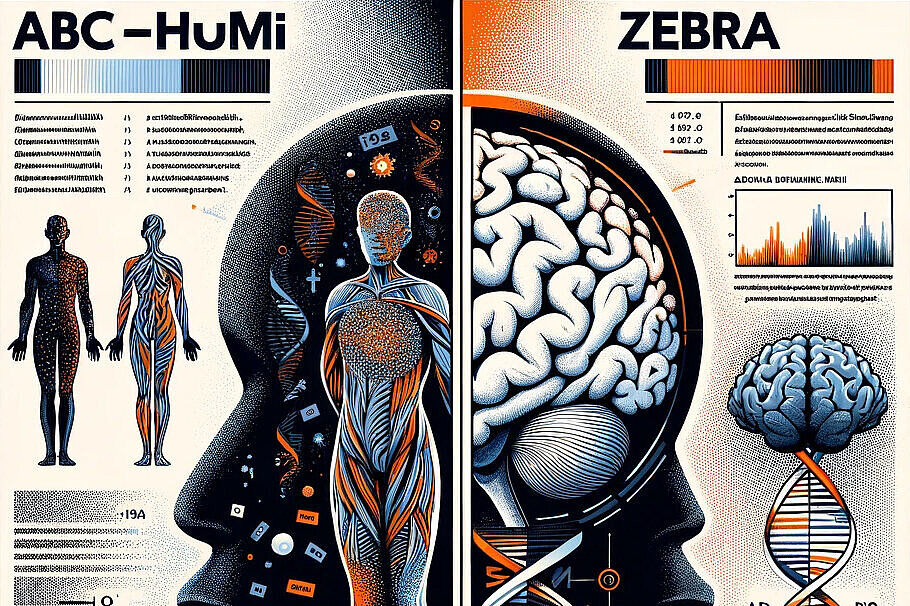
Human-Microbe Systems Bioinformatics

Our Research
Natural products are a promising source of new pharmaceuticals, such as anti-infectives. They also mediate human-microbe and microbe-microbe interactions and could serve clinicians as biomarkers of health and disease. Breakthroughs in omics technologies enabled the rapid acquisition of voluminous data on natural products and their producers, but the computational analysis and interpretation of these data remain a bottleneck.
We aim to turn natural product discovery into a high-throughput technology by developing and applying specialized computational tools. The close interaction with computer scientists and natural product experts makes the created software robust, efficient, and genuinely suitable for the local and international research community. The access to unique single- and multi-omics datasets available within collaborative projects represents a gold mine for tools’ validation and fine-tuning and ultimately leads to biomedically important discoveries and enhanced understanding of the complex human-microbe systems.
Our Research
Natural products are a promising source of new pharmaceuticals, such as anti-infectives. They also mediate human-microbe and microbe-microbe interactions and could serve clinicians as biomarkers of health and disease. Breakthroughs in omics technologies enabled the rapid acquisition of voluminous data on natural products and their producers, but the computational analysis and interpretation of these data remain a bottleneck.
We aim to turn natural product discovery into a high-throughput technology by developing and applying specialized computational tools. The close interaction with computer scientists and natural product experts makes the created software robust, efficient, and genuinely suitable for the local and international research community. The access to unique single- and multi-omics datasets available within collaborative projects represents a gold mine for tools’ validation and fine-tuning and ultimately leads to biomedically important discoveries and enhanced understanding of the complex human-microbe systems.
Jun Prof Dr Alexey Gurevich
We bridge computational and experimental science to develop researcher-friendly bioinformatics tools that advance natural product discovery.

Alexey Gurevich studied software engineering at St. Petersburg State Polytechnic University (BSc 2010, summa cum laude) and St. Petersburg Academic University of the Russian Academy of Sciences (MSc 2012, summa cum laude). In 2011, in the Prof. Pavel Pevzner group at the Academic University, he started focussing on algorithmic bioinformatics. The group later relocated to St. Petersburg State University where Alexey obtained a Ph.D. in bioinformatics in 2018. He worked at St. Petersburg University until 2022 with short research visits to the Pevzner lab at the University of California San Diego (2015 and 2016) and to the Kohlbacher lab at the University of Tübingen (2019, DAAD Fellowship). In July 2022, Alexey joined HIPS as a Junior Professor leading the Human-Microbe Systems Bioinformatics group.
Alexey's research focuses on creating efficient algorithms and software for handling noisy omics data. He contributed to the state-of-the-art SPAdes and QUAST genome assembly and analysis software and multiple computational methods for natural product discovery. These works are widely used and cited by the research community as exemplified by the inclusion of Alexey Gurevich in the Web of Science list of Highly Cited Researchers 2023.
Selected Publications
ABC-HuMi: the Atlas of Biosynthetic Gene Clusters in the Human Microbiome. Nucleic Acids Research, 2024-01, DOI: 10.1093/nar/gkad1086
MolDiscovery: learning mass spectrometry fragmentation of small molecules. Nature Communications, 2021-12 | DOI: 10.1038/s41467-021-23986-0
MetaMiner: A Scalable Peptidogenomics Approach for Discovery of Ribosomal Peptide Natural Products with Blind Modifications from Microbial Communities. Cell Systems, 2019-12-18 | DOI: 10.1016/j.cels.2019.09.004
Increased diversity of peptidic natural products revealed by modification-tolerant database search of mass spectra. Nature Microbiology, 2018-03-22 | DOI: 10.1038/s41564-017-0094-2
QUAST: Quality assessment tool for genome assemblies. Bioinformatics, 2013 | DOI: 10.1093/bioinformatics/btt086
A complete list of publications can be found on the HIPS website.

